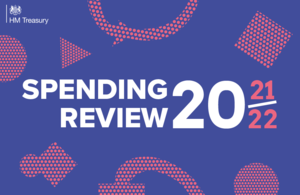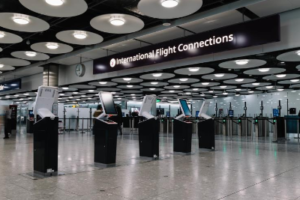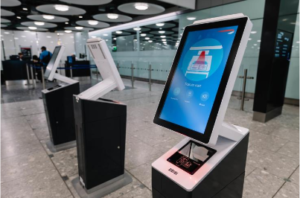April 2022 – UK Government Guidance on Covid-19
On Friday, April 1, the UK government changed its approach to Covid-19 guidance, removing much of the specific guidance that was previously available. This decision is in line with the government’s “Living with Covid” (England) strategy, which removes most legal restrictions related to the pandemic and introduces more general public health advice. Please refer to the relevant public health advice for the country in which you work: England, Scotland and Wales.
– The Covid-19 guidance is now part of the general guidance for employers from the Health and Safety Executive (HSE). Although the HSE no longer requires Covid-19 controls, employers must continue to consult with workers and their representatives on any changes that may affect health and safety. Check out this guidance on consulting and involving your workers.
– There is also guidance on when you must report under the Reporting of Accidents, Diseases and Dangerous Occurrences Regulations (RIDDOR) and more detailed guidance for those considered to be at risk. (UNITED KINGDOM)
– The government has published advice on how to live safely with respiratory illnesses, which includes recommendations on when to go to work and when not to, but these recommendations are for when people have symptoms. There is also specific advice on ventilation. (England)
There remains a question mark over risk management for vulnerable employees. The BCC has asked for specific guidance or FAQs for companies. For more information, please see the updated guidance on the BCC’s Coronavirus Hub.
October 2021
Applying for Residency in France
PENDING AND LATE APPLICATIONS
The deadline for applying for your Withdrawal Agreement Residence Permit (WARP), known in French as a ‘carte/titre de séjour « accord de retrait du Royaume-Uni de l’Union Européenne »’, was 30 June 2021. The online application portal closed on 4 October 2021. You must be in possession of your WARP before 1 January 2022. Read more about the residence permit you need.
If you have applied for a WARP but have not yet received it, you must keep your certificate of application (from your initial email confirmation) and continue the process.
If you have not had a response to your WARP application, check your email and spam folder, and contact your prefecture. You should also email the Interior Ministry: contact-demandeenligne-brexit-dgef@interieur.gouv.fr. Respond promptly to requests, to help prefectures process your application quickly. Keep copies of your correspondence, even if you do not receive a reply.
If your application is refused, you will be notified about the appeals process. Read
the French government advice on how to appeal a residency decision (in French).
If you have not yet applied, you can still apply for your WARP at your local prefecture if you have reasonable grounds for missing the deadline. This is the case if you are in one of the following situations:
- you become an adult after 4 October 2021;
- family members join you in France after 4 October 2021;
- you were unable to complete your application due to legitimate reasons (e.g., reasons relating to your medical condition, force majeure, etc.).
In these cases, contact your prefecture. Find out more here.
You will need to provide evidence of why your application is late.
You must renew your WARP when it expires. Check your prefecture’s website to find out the process for renewing your WARP locally.
UK NATIONALS SUPPORT FUND
In France, British Government funded organisations have been helping UK nationals secure their residency rights. They have been providing practical support to individuals finding it harder to complete Withdrawal Agreement applications, including pensioners, disabled people, those living in remote areas or who have mobility difficulties, and those who face language barriers or barriers in accessing technology.
Support from the UK Nationals Support Fund will end on 15 October 2021.
You should contact the UK Nationals Support Fund implementing partners before this date if you require additional support.
If you are already being assisted by our implementing partners, they will continue to assist you until you have made your application. Contact details below.
IOM – The International Organisation for Migration (Brittany, Normandy, Ile de France, Hauts-de-France, and Pays de la Loire)
Visit the IOM website
Email: UKnationalsFR@iom.int
Hotline: 08 09 54 98 32
FBN – The Franco-British Network (Dordogne, Provence-Alpes-Côte-d’Azur, Auvergne-Rhône-Alpes)
Visit the FBN website
Email: The Franco-British Network
Hotline: 05 19 88 01 09
Church of England – Diocese in Europe (Nouvelle Aquitaine, Occitanie, Grand Est, Bourgogne-Franche-Comté, Centre-Val de Loire, Corsica)
Visit the Diocese in Europe Residency Support Project website
Hotline: 05 32 80 00 05
NEW ARRIVALS
Moving to France?
If you settled in France after 1 January 2021, you must apply for a residence permit for non-European nationals at your local prefecture.
British nationals arriving in France after 1 January 2021 are subject to the provisions of the common law, except when they are close family members of a British national settled in France before that date.
All British nationals and family members over 18 who wish to settle in France for a stay of more than three months must hold a residence permit. Minors under 18 years of age are exempt from this obligation unless they need a residence permit to work.
A residence permit must be issued directly in the prefecture. See more here.
PASSPORT
The rules for travelling to the UK are changing!
From 1 October 2021 most EU, EEA and Swiss citizens will need a valid passport to enter the UK ID cards will no longer be accepted as a valid travel document. If you do not have a passport, you are liable to be refused entry. For more information and exceptions visit GOV.UK.
Had your passport stamped upon entry or exit to France despite being a resident in the EU?
When you travel, especially within the Schengen area, proactively show your residence document or frontier worker permit issued under the Withdrawal Agreement, in addition to your valid passport.
If you have applied for, but not yet received, your WARP, carry your email confirmation. Your passport may be stamped on entry and exit but this will not affect your rights in the country or countries where you live or work.
If a passport is incorrectly stamped, the stamp is considered null and void when you can show evidence of lawful residence. If you have rights under the Withdrawal Agreement you do not need any extra months on your passport to enter or exit EU countries. See more here.
Note that different rules apply for visitors to France who usually live in the UK. See Travel Advice.
TRAVEL UPDATE
The FCDO no longer advises against non-essential travel to France. You should continue to check FCDO travel advice before booking travel.
See below for details on travelling between the UK and France.
Current French Anti-Covid Measures
Everyone over 12 attending events and cultural spaces with over 50 people will be asked to demonstrate their COVID-19 status through the “pass sanitaire”.
You will need this to access a range of leisure facilities (bars, restaurants, museums, cinemas), hospitals, retirement homes and modes of transport such as long distance train and bus journeys and planes.
You can find more information on how to access the “pass sanitaire” (for those resident in France) or (for those visiting France) how to demonstrate that you are fully vaccinated in our Travel Advice.
Covid-19 Vaccination Passes
Remember that if the name on your vaccination certificate does not match the name in your passport, you may need to present a piece of additional evidence, such as a marriage or birth certificate.
Travel to the UK from France
Fully vaccinated* travellers from France no longer need a pre-departure test for travel to England if they are fully vaccinated, though they do still need to take a test on or before day 2 after arrival. You can find all details here, including the rules for Scotland, Wales and Northern Ireland.
(*NB: In the UK, “fully vaccinated” means two doses of a two dose vaccine, including Pfizer-BioNTech, Moderna and AstraZeneca. The UK does not recognise prior infection + 1 dose as fully vaccinated. However, where 2 doses of a vaccine are required for a full course, you are able to:
- mix 2 different types of vaccine, for example Oxford/AstraZeneca and Moderna
- have the 2 vaccinations under 2 different approved programmes, for example Australia and Japan, UK and USA, EU and Canada.)
To benefit from this exemption, travellers will need to show proof of being fully vaccinated with one of the authorised vaccines before travel. You can find full details here.
Children under 18 who are resident in France (or the US or other EU countries) do not need to self-isolate or take a day 8 test if travelling from France to England or Scotland. They must follow the same rules as children and young people from the UK which are available here.
If you cannot show proof of vaccination, you must follow the rules for those who are not fully vaccinated, including self-isolating for 10 days and taking a test on day 2 and day 8. You can find more information about the rules for unvaccinated arrivals here. In England, you can use the Test and Release scheme to end quarantine early, if you take a test after 5 days.
All adult travellers (regardless of vaccination status) must:
Unvaccinated travellers also need to complete an attestation to justify leaving France. Returning to your country of residence or origin is permitted. Full details here.
You may be denied boarding if you do not comply with these requirements, or fined if found to have broken the rules.
If you entered France from a red-listed country less than ten days before you arrive in England, then you will need to use managed quarantine.
There are a small number of exemptions to these rules, which you can find here.
If you are travelling to Scotland, Wales or Northern Ireland, you can find specific information here.
Travel to France from the UK
The UK is currently on the French amber list. You can read more about this means here.
Travellers who are fully vaccinated do not need an essential reason to travel to France and do not need to self-isolate on arrival. Fully vaccinated adults no longer need to present evidence of a negative test result before travel.
Fully vaccinated travellers will need to present the following documents:
- proof of vaccination status. If you live in England, France will accept the NHS app or your NHS letter to demonstrate your COVID-19 vaccination status. If you live in Scotland or Wales, France will accept your respective letter/digital certificate from health authority to demonstrate your COVID-19 vaccination status. Your NHS appointment card from vaccination centres is not designed to be used as proof of vaccination and should not be used to demonstrate your vaccine status;
- a completed ‘sworn statement’ (déclaration sur l’honneur) form self-certifying they are not suffering from symptoms associated with coronavirus and have not been in contact with confirmed cases in the preceding fortnight. This can be found on the French government’s website.
Unvaccinated children aged 12 years old or over who are travellingwith a fully vaccinated adult are required to present a negativetest result (PCR or antigen).However, they do not need to provide an essential reason for travel, nor do they need to self-isolate on arrival.
Children aged 12 years old or over who are unvaccinated and travelling alone are subject to the same conditions adults who are not fully vaccinated. Children aged 11 years old or youngerdo not need to presenta negative test result to travel.
Those travelling to France from the UK who are not fully vaccinated will only be permitted to travel for essential reasons (further explanations here).
They will also need:
- a completed International Travel Certificate to confirm their essential reason for travel. In exceptional circumstances, the French Consulate in London may be able to assist with travel for an essential reason not listed on the International TravelCertificate.
- a completed ‘sworn statement’ (déclaration sur l’honneur) form self-certifying they are not suffering from symptoms associated with coronavirus and have not been in contact with confirmed cases in the preceding fortnight, and that they will self-isolate for seven days after arrival. This can be found on the French government’s website.
- (for those aged 11 or over) evidence of a negative test taken within 24 hours of departure.
And they will need to self-isolate for 7 days after arrival, then take another PCR test following this period of self-isolation. You can find general advice on travelling abroad from the UK here.
Healthcare surgery sessions
After last edition’s success, our healthcare surgeries are back! These are ten minutes sessions where you can chat to one of our policy experts if you are having issues registering for local healthcare.
Click here to book your session
Please note that these sessions are to discuss healthcare, not health problems. If you have an illness or medical problem, please see, please seek advice from a doctor or healthcare professional.
USEFUL LINKS TO ADDITIONAL GUIDANCE OR SUPPORT
Please visit the webpages below for more information. The links and contact details can signpost you in the right direction and also connect you to those who can provide support or offer help with technical matters if you need it.
Key websites:
Living in France Guide: https://www.gov.uk/guidance/living-in-france
France Travel Advice: https://www.gov.uk/foreign-travel-advice/france
Healthcare in France: https://www.gov.uk/guidance/healthcare-in-france-including-martinique-and-guadaloupe
NHS advice on planning healthcare abroad: https://www.nhs.uk/using-the-nhs/healthcare-abroad/moving-abroad/planning-your-healthcare/
Source: Voisins Voices, a British Embassy Paris Newsletter
30th July 2021
Amber list rules for entering England
Amber list of countries and territories:
https://www.gov.uk/guidance/red-amber-and-green-list-rules-for-entering-england
What you must do if you have been in a country or territory on the amber list in the 10 days before you arrive in England.
- Before you travel to England you must:
– take a COVID-19 test – you must take the test in the 3 days before you travel to England
– book and pay for COVID-19 tests – to be taken after arrival in England
– complete a passenger locator form - On arrival in England you must:
– quarantine at home or in the place you are staying for 10 days
– take a COVID-19 test on or before day 2 and on or after day 8 - You do not need to quarantine or take a day 8 test after you arrive in England if you are either:
– fully vaccinated in the UK or under the UK vaccine programme overseas
– under 18 on the day you arrive in England and resident in the UK or in a country with a vaccination programme approved by the UK
– part of a UK-approved vaccine trial
You must have had your final dose of the vaccine at least 14 whole days before the date you arrive in England. You still need to book and take a day 2 test.
Book your test and read more on the British Government website here:
https://www.find-travel-test-provider.service.gov.uk/test-type
14th June 2021
ENGLAND- THE FINAL STAGE OF EASING LOCKDOWN RESTRICTIONS IS TO BE DELAYED UNTIL 19 JULY.
The final stage of easing lockdown restrictions in England is to be delayed until 19 July due to the spread of the new Delta variant.
Prime Minister Boris Johnson said there would be a review after two weeks and he was “confident” the delay would not need to be longer than four weeks.
Going ahead with stage four on 21 June would mean “a real possibility” of the virus outrunning the vaccines, leading to thousands more deaths which could otherwise have been avoided.
The delay would give the NHS “a few more crucial weeks” to get people vaccinated: while the link between infections and hospital admissions had been “weakened” it had not been “severed” yet.Mr Johnson said two-thirds of adults would have been offered two coronavirus jabs by 19 July, including all vulnerable groups. And the gap between doses for over-40s in England will be reduced from 12 to eight weeks.
26th May 2021
COVID 19- FRANCE TO IMPOSE MANDATOROY QUARANTINE ON TRAVELLERS FROM THE UK
France plans to impose a 7-day quarantine for travellers from the UK from Monday 31 May. Justified reasons will be required for non-resident foreign nationals travelling to France from the UK, who will be required to present a less than 48h old a PCR or antigen test.
This follows the outbreak of new cases of the more contagious ‘Indian’ variant and the German decision to restrict movement between the UK and Germany last weekend.
Sources: press conference by the government spokesman, Gabriel Attal, on Wednesday 26 May.
21st May 2021
COVID 19- FRANCE: SOCIAL DISTANCE AT WORK: GUIDELINE – by Ferrières & Co
Despite the recent partial lifting of the lockdown in France, the government maintains all the social distance rules at work, including the 100% work-from-home rule, distance between workers, masks, etc.
The updated version of official guidelines, dated May 18th, 2021, reminds all the rules and adds details:
➤New ventilation instructions: companies are required to ventilate the workplace with natural or mechanical ventilation (doors and / or windows open as much as possible, and at least several minutes every hour).
➤Measurement of the CO2 rate: employers are asked to promote the measurement of carbon dioxide in the air to assess the need for additional ventilation.
➤Authorization of self-tests: companies can now offer company-paid self-tests packs to their employees. These are 100% optional for employees, and must comply with medical privacy rules.
➤Incentive for vaccination: Employers are encouraged to allow vaccination by the occupational health service. Employees who choose to be vaccinated at the occupational medicine center are allowed to get vaccinated during their working hours. They don’t have to reveal that they are going to get vaccinated, they can simply state that they go to a medical examination.
https://travail-emploi.gouv.fr/IMG/pdf/protocole-national-sante-securite-en-entreprise.pdf
18th May 2021
COVID19 – FRANCE: NEW SOCIAL DISTANCE RULES IN RETAIL STORES – May 19th, 2021

Non-essential retail stores are allowed to re-open effective Wednesday 19th, May.
If you plan on re-opening your store, please make sure your local staff implements the new social distance rules described in the below official guide from the Government:
https://www.economie.gouv.fr/files/files/directions_services/covid19-soutien-entreprises/protocole-sanitaire-renforce-commerces.pdf
(News from Ferrières and Co)
29th April 2021
COVID19- FRANCE: ROADMAP OUT OF LOCKDOWN
President Macron announces his 4-steps roadmap out of lockdown for France.
The President of the Republic unveiled on 29 April 2021 the 4 stages of his roadmap in an interview with the regional press.
3 MAY: STAGE 1
– Curfew and teleworking still remain
– Status quo for businesses
– Reopening of secondary schools with a half-gauge from the 4th grade.
– End of the attestation for daytime movements.
– End of restrictions for inter-regional travel.
19 MAY: STAGE 2
– Curfew at 9pm
– Teleworking maintained
– Gatherings of more than ten people prohibited
– Reopening of cultural sites (with a maximum capacity of 800 indoors and 1000 outdoors)
– Reopening of shops in accordance with the set gauges
– Reopening of terraces (tables of 6 people maximum)
– Resumption of sports activities in indoor and outdoor areas in compliance with sanitary measures
9 JUNE: STAGE 3
– Curfew shifted to 11pm
– Teleworking relaxed
– Foreign tourism authorised, subject to health pass)
– Reopening of cafés and restaurants (tables of 6 people max)
– Cultural and sports venues: max. 5,000 people (access with health pass)
– Reopening of exhibition halls (5000 people max)
– Reopening of sports halls and contact sports allowed
30 JUNE: STAGE 4
– End of curfew
– Maintain barrier gestures and social distancing.
– End of gauge limits depending on local health context.
– All outdoor events of 1000 people allowed. (health pass)
– Nightclubs remain closed.
Concerning vaccinations,
– Vaccination is now open to people over 18 with co-morbidities, notably obesity
– Adults over 18 will be able to be vaccinated from 18 June.
All these measures may be curbed by health “emergency brakes” in areas where the virus is circulating too much”, warns Emmanuel Macron.
Source : Ouest France, Covid-19. Quel est le calendrier du déconfinement annoncé par Emmanuel Macron ?, 29.04.2021.
12th March
A new schedule for the introduction of import countrol processes at borders has been set out by the UK government on Thursday 11th March to enable UK businesses to focus on their recovery.
- Customs controls, due to start in April are postponed to October 2021
- Customs controls, due to start in July are postponed to January 2022
This will give businesses more time to prepare for changes at the border and minimise disruption as the economy gradually reopens.
From 1st October 2021: Export health certificate requirements and pre-notification requirements for products of animal origin (POAO) and high-risk foodstuffs without animal origin (HRFNAO) will be required.
From 1st January 2022:
- Customs declarations will be required for goods not controlled at the point of import.
Between July 2021 and January 2022, the deferred declaration system can still be used, including the submission of supplementary declarations up to six months after the goods have been imported. - Safety and security declarations will be required.
- Physical SPS checks for POAO, HRFNAO and high risk plants and plant products will be required and will take place at border control posts.
- Pre-notification requirements and documentary checks will be required for low risk plants and plant products from January 2022.
From 1 st March 2022: checks at borders will apply to live animals and low-risk plants and plant products
11th March 2021
BCC MONTHLY ECONOMIC REVIEW
Economic conditions remain difficult. Although a vaccine would provide light at the end of the tunnel, the economic scarring already caused by the pandemic, including structural unemployment, rising private sector debt levels and weak business investmentmay mean that any recovery is slower and bumpier than many, including the Bank of England and the OBR, currently expect.
- UK economic output is now 7.8%below its pre-pandemic level. For 2020 as a whole, the UK economy contracted by 9.9%, the largestannualfall on record.
- The dominant services sector contracted by 8.9% in 2020 as a whole.
- Business investment is still 10.3% below its pre-pandemic level, larger than the gap for overall economic output(7.8%)
- Thanks to the Job retention scheme, the peak for unemployment will be markedly lower than previously expected.
- The OBR expects UK economic output to return to pre-pandemic levels by mid-2022.
- The Eurozone is on course for a double-dip recession
click here to read the whole BCC Economic Review of March.
 3rd March 2021
3rd March 2021
Chancelor Rishi Sunak’s Budget 2021 speech – setting path for recovery
In a Budget which ‘meets the moment’, the Chancellor of the Exchequer Rishi Sunak has (3 March) set out a £65 billion three-point plan to provide support for jobs and businesses as we emerge from the pandemic and forge a path to recovery.
Chancellor’s three-point plan to protect jobs and strengthen public finances:
• billions to support businesses and families through the pandemic
• investment-led recovery as UK emerges from lockdown
• future changes to strengthen public finances
Chancellor of the Exchequer Rishi Sunak said his immediate priority continues to be supporting those hardest hit, with extensions to furlough, self-employed support, business grants, loans and VAT cuts – bringing total fiscal support to over £407 billion.
He also set out plans to drive jobs, growth and investment to help the economy rebound – and spoke honestly about the tough choices required to put the public finances on a more sustainable path.
Delivering the budget in Parliament Chancellor of the Exchequer Rishi Sunak said:
“This Budget meets the moment with a three-part plan to protect the jobs and livelihoods of the British people.
First, we will continue doing whatever it takes to support the British people and businesses through this moment of crisis.
Second, once we are on the way to recovery, we will need to begin fixing the public finances – and I want to be honest today about our plans to do that.
And, third, in today’s Budget we begin the work of building our future economy.”
– Budget 2021 speech, click here
– Budget 2021, click here
– Economic and fiscal outlook (Office for Budget Responsibility), click here
– Plan for growth, click here
22d February 2021
Lockdown: England to reopen in 4 steps
Government publishes four-step roadmap to ease restrictions across England.
Each step to be assessed against four tests before restrictions ease, starting with the return of schools on 8 March.
PM is clear that the decision on each stage will be based on data not dates.
To read the press release, please click here.
the 4-steps roadmap can be found here.
3rd February 2021
New Travel Restrictions between France and the UK
With the unpredictable evolution of the covid crisis, restrictions on travel between both France and the UK change quite often. In order to have the latest news on this topic please use this link.
25th November 2020
Lockdown: France to reopen in 3 steps
President Macron has announced the current lockdown would be gradually lifted starting next Saturday. The plan has 3 steps:
- November 28th: reopening of non-essential stores (except bars, hotels, restaurants)
- December 15th: certificates will no longer be required for going outside, however, a curfew will be set up
- January 20th: depending on the number of Covid patients in hospitals: reopening of sports, restaurants, ski resorts
The full details of the plan are available on the government website below: https://www.gouvernement.fr/info-coronavirus
For more analyses like these also vitie Ferrières & Co using the link.
25th November 2020
Spending Review to fight virus, deliver promises and invest in UK’s recovery – news from UK Governement
The Chancellor, Rishi Sunak, presented a Spending Review to the House of Commons today. The government plans to spend billions on fighting coronavirus, strengthening public services and investing (especially in infrastructure) to support economic recovery and jobs.
Rishi Sunak said: “Today’s Spending Review delivers on the priorities of the British people. Our health emergency is not yet over, and the economic emergency has only just begun; so our immediate priority is to protect people’s lives and livelihoods. But today’s Spending Review also delivers stronger public services – paying for new hospitals, better schools and safer streets. And it delivers a once-in-a-generation investment in infrastructure. Creating jobs, growing the economy, and increasing pride in the places people call home.”

Here are the key measures.
Public services
The spending review confirms an additional £38bn this year and £55bn next year to enable public services to fight the pandemic. Some illustrations :
1. increase in the National Health Service budget by £6.3 billion in 2021-22
2. 2.2 billion increase in the school education budget
3. 400 million will be devoted to the recruitment of 20,000 police officers by 2023.
4. 3.6 billion will be spent on employment support, including a “restart scheme” which will provide £2.9 billion over three years to help more than one million unemployed people look for work.
Rebuilding the economy
A £100 billion infrastructure investment programme is announced to kick-start economic recovery and support employment, including multi-year funding for projects such as schools, hospitals, housing and transport, as well as investment in areas to improve long-term competitiveness. These include :
1. 12 billion will be allocated in 2021 and 2022 to the objective of zero emissions (“Net Zero”) by 2050 within the framework of the Prime Minister’s plan for a green industrial revolution.
2. 20 billion will be devoted to investment in new housing from 2021-2022.
3. an additional 14.6 billion will support R&D.
4. a fund of 4 billion will be created to upgrade infrastructure in the territories.
Other ads :
1. an increase in the minimum wage to £8.91 per hour for workers aged 23 and over
2. wage increases for the lowest paid public sector employees
3. The United Kingdom will devote 0.5% of its national income to official development assistance in 2021.
4. the defence budget will increase by 24 billion over the next four years, the largest increase in 30 years
Economic forecasts
The Chancellor’s announcements are based on the macro-economic framework of the Office for Budget Responsibility. In the central scenario, growth is forecast at -11.3% in 2020 and 5.5% in 2021, with the economy expected to return to its pre-crisis level by the end of 2022. Unemployment should reach 6.8% in 2021 (with a peak of 7.5% in the second quarter) after 4.4% in 2020. The public deficit would be 7.7% of GDP in 2021-22 after 19% in 2020-21 (a record since 1944) and public debt would exceed 100% of GDP for the first time since 1960.
12h November 2020
British Airways shows us the travel experience during the COVID-19 period
Mark Muren, Head of Global Sales and Dr Michael Harrigan, Head of British Airways Health Services recently took a business day trip. We followed their experience of what its like to travel during Covid-19 and the safety measures we have in place.
6th November 2020

UK government extends Furlough to March and increases self-employed support
Workers across the United Kingdom will benefit from increased support with a five-month extension of the furlough scheme into Spring 2021, the Chancellor announced today, 5 November. Detailed information is available on the government website.
30th October 2020
 Having greatly suffered from the slow return to offices as a consequence of Covid-19, the City of London is looking to the future by fundamentally changing its operations. Wanting notably 20% new tenants by 2025, as well as shorter commute times for workers, the new plan outlined in this article highlights the City’s strategy to remain one of the world’s leading business centers. Learn more by reading the article from FINANCIAL TIMES.
Having greatly suffered from the slow return to offices as a consequence of Covid-19, the City of London is looking to the future by fundamentally changing its operations. Wanting notably 20% new tenants by 2025, as well as shorter commute times for workers, the new plan outlined in this article highlights the City’s strategy to remain one of the world’s leading business centers. Learn more by reading the article from FINANCIAL TIMES.
14th October 2020
Connecting Safely Through London Heathrow, Terminal 5
 All BA flights at LHR are operating from Terminal 5 and our Joint Business partner* is temporarily joining us at our home in Terminal 5 enabling even smoother connections at LHR all in one terminal
All BA flights at LHR are operating from Terminal 5 and our Joint Business partner* is temporarily joining us at our home in Terminal 5 enabling even smoother connections at LHR all in one terminal
Our Lounge facilities are starting to open up again giving the opportunity to freshen up and relax in comfort and safety between flights**. For the latest information of which lounges are open please see here.

There has been no change to our minimum connection times or checked through baggage process.
Our electronic connection kiosks enable a contactless connections experience through our clean and spacious terminal. Explore this page to find out what extra measures Heathrow has introduce to give everyone peace of mind: https://www.heathrow.com/at-the-airport/fly-safe
Please note you do not need to quarantine when transferring through the UK on the same day. You do not need to fill out any locator forms, just check-in for your onward flight and away you go. If you have an overnight transfer, and are coming from a country where the UK does not have an agreed travel corridor, you will need to self isolate for the duration of your transit. More info here.
1st October 2020

The French Government has announced that the current fulough plan is extending until December 31st 2020 for the industrial sectors that have been affected the most (events, culture, travel, sports).
A new press release from the government is now available. You can visit it to know if it concerns you and under which conditions.
28th September 2020

To find the latest information on the support provided by the French government (and other concerned institutions) to businesses whose activities have been challenged by Covid, please click on the links below:
https://www.economie.gouv.fr/covid19-soutien-entreprises#
https://bpifrance-creation.fr/entrepreneur/actualites/quelles-aides-entreprises-impactees-covid-19
https://www.cci.fr/coronavirus-entreprise/les-aides#
https://www.paris.fr/pages/coronavirus-soutien-aux-entreprises-parisiennes-7678
22nd May 2020

6th May 2020
Thank you and bravo to our members, the Board Members and the Franco-British Chamber team for contributing to our Wall of Fame and for spreading messages of hope in this unprecedented period.
In the coming days: respect the barrier gestures – stay safe – stay connected.
Daily Update on the key Coronavirus pandemic statistics in France and in the UK
Update 9th April 2020
The advice of Prof. Claire Mounier-Vehier
Main topics and advice:
– People at risk: people over 70 years of age, and/or having a treated chronic disease and/or pregnant women – only a 2% mortality rate (for elderly and chronic diseases) ;
If you are among those at risk: prepare your medical file in advance;
– Pregnant women: the virus doesn’t pass into the bloodstream or, later, into the milk. If pregnant women, whatever their trimester, have a fever and/or cough, call 15 who regulate Covid screening. Do not hesitate to take your temperature in the morning and evening;
– Everyone: When the warning signs appear (cough + fever + chest tightness). Do not hesitate to call your doctor or the SAMU (dial 15 in France, 112 in the EU);
– Absolutely avoid self-medication: paracetamol: 3000mg max/day or about 6 capsules (500mg), 4000mg on medical prescription;
– Maintain hand hygiene;
– Eat properly: green vegetables, fruit and drink plenty of fluids (water);
– Take vitamin D because UV rays do not pass through windows: ask your doctor for a supplement;
– Beware of warning signs that may be related to a heart attack that requires immediate attention (SAMU will send the SMUR). SAMU, emergency and cardiac emergencies have specific non-Covid channels. When faced with prolonged chest pain, another cardiac symptom or a sudden neurological problem, call 15 without delay because every minute counts.
Many other topics were also discussed during the question and answer session.
And above all…
STAY AT HOME – USE BARRIER PRECAUTIONS OUTSIDE
STAY VIGILANT
TO GET NON-SANITARY MASKS
The two links are complementary:
Masques_reservees_a_des_usages_non_sanitaires
Masques_alternatifs_fournisseur_0904_08h00
Update 30th March 2020
Dear Members,
During this difficult and confining period for our Franco-British business community, the Chamber is actively taking steps to adapt its organization and actions.
To this end and in close collaboration with our President, Thierry Drilhon, the Board of Directors and the Chamber’s team, we have put in place a specific action plan for the coming weeks:
– we have created a special weekly newsletter “Covid-19 & Business”, as well as this special page, during this health crisis, to keep you informed of the decisions taken by the French and British governments in the economic and health areas, and of the activities of our members with the leitmotiv: stay safe – stay connected;
– we will also set-up a web-events program (videoconferences) starting this week. Also, in order to better meet your expectations, you will receive a short questionnaire that will enable us understand your priorities and the topics on which you wish to exchange with our experts;
– You will then receive invitations and a programme of videoconference events consisting of:
1/ presentations by experts from both countries with Q&A sessions,
2/ presentations by key business leaders and institutions from France and the UK,
3/ testimonials from leading companies in their sector of activity.
In the meantime, please do not hesitate to send us your proposals and concerns. Some of you have already come forward with suggestions. The team remains close to accompany and help you.
Stay at home, take care of yourself and your loved ones, and together we will overcome.
25 March 2020
Dear Members,
Further to directives from the French Government to prevent the spread of the Coronavirus in France, the Franco-British Chamber of Commerce has taken the necessary measures to guarantee, on the one hand, the security of all and, on the other hand, the continuity of our services to our members and partners. We have therefore decided to suspend all events, task force meetings and meetings for the upcoming weeks. New dates will be communicated as soon as possible.
The Chamber’s team will be working from home until further notice. We will do our very best to respond to communications promptly during this unprecedented time. We have all the necessary tools to adapt while guaranteeing you our availability, our reactivity and the quality of our services remotely.
Your usual contacts can be reached mainly by e-mail and on their mobile phone.
We remain at your service for any business enquiries you may have at this time.
We are actively preparing a programme of thematic videoconferences, the programme of which will be communicated to you
very soon in a specific Newsletter.
Stay home, take good care of yourself and your loved ones.







